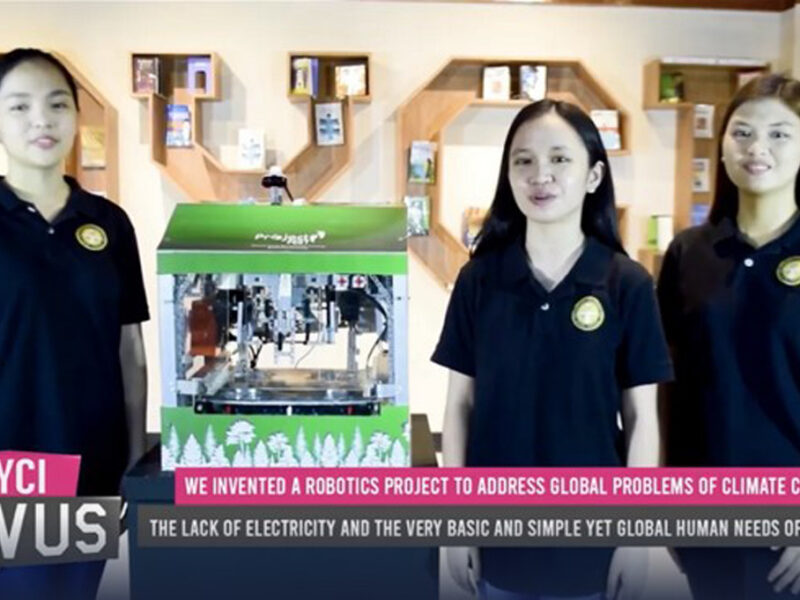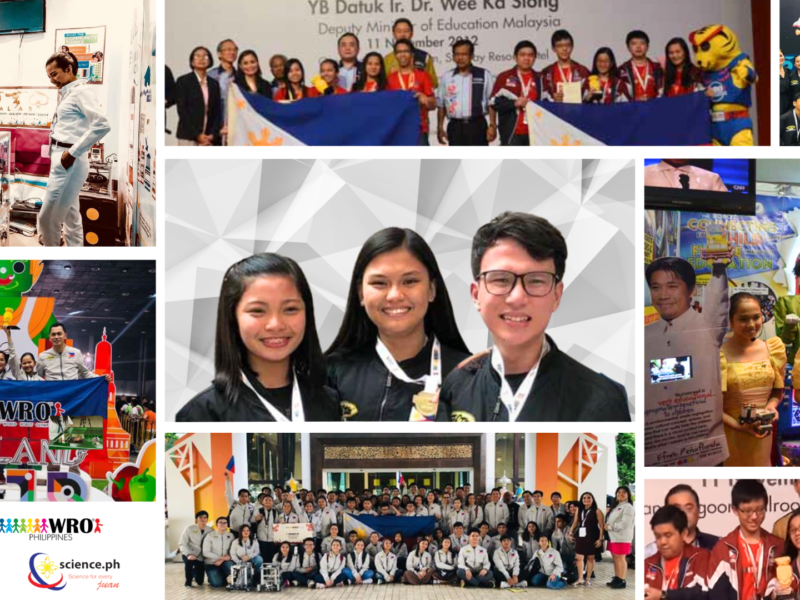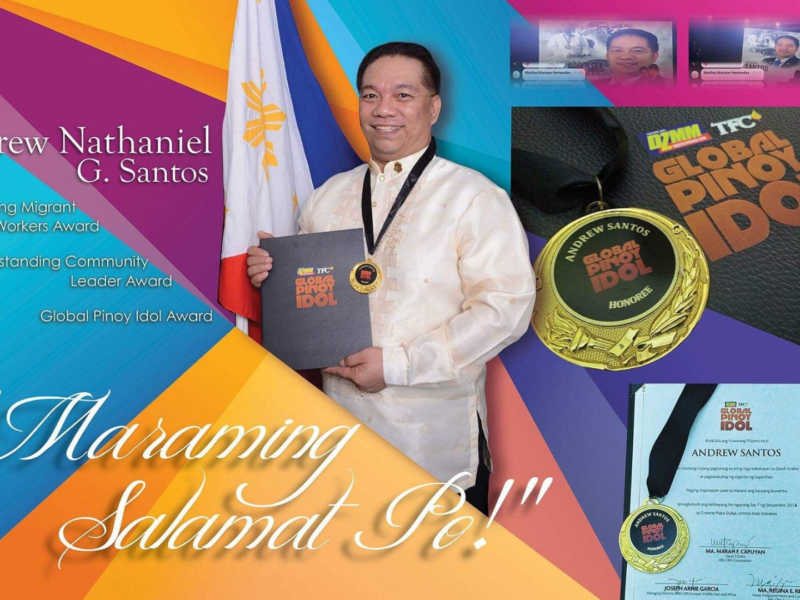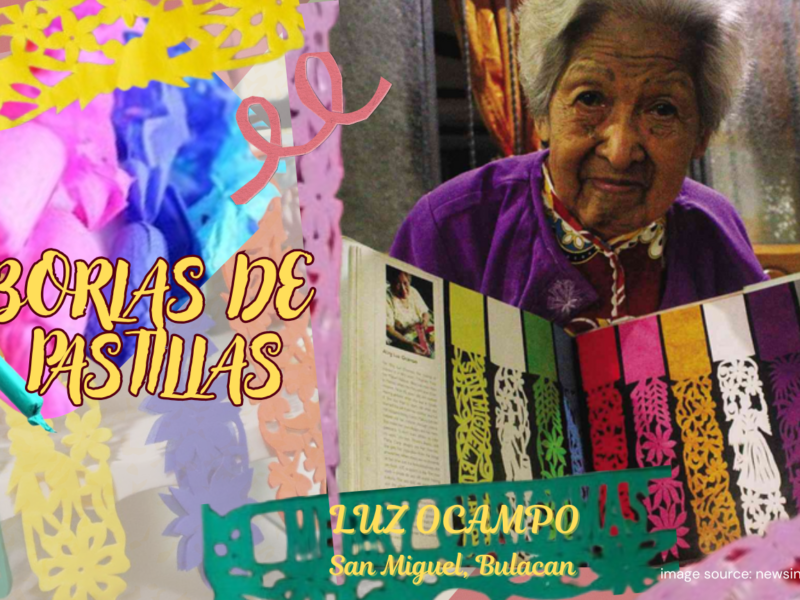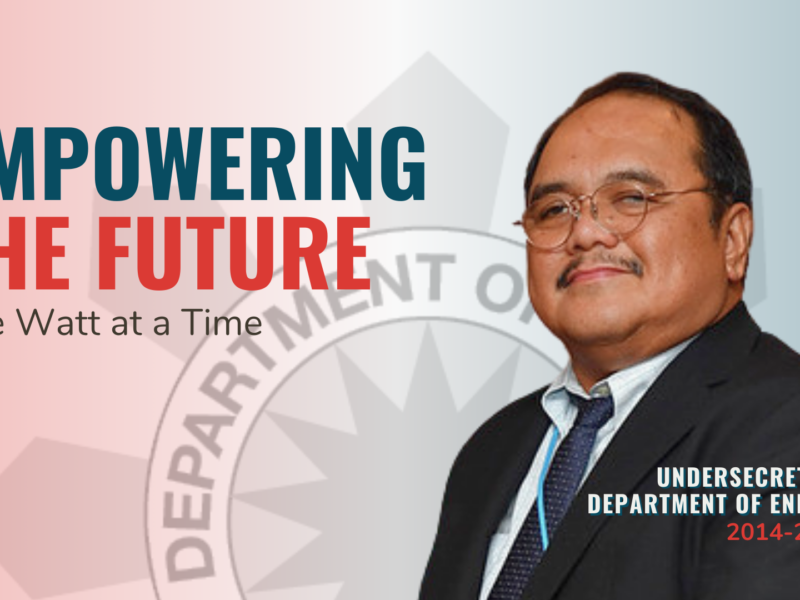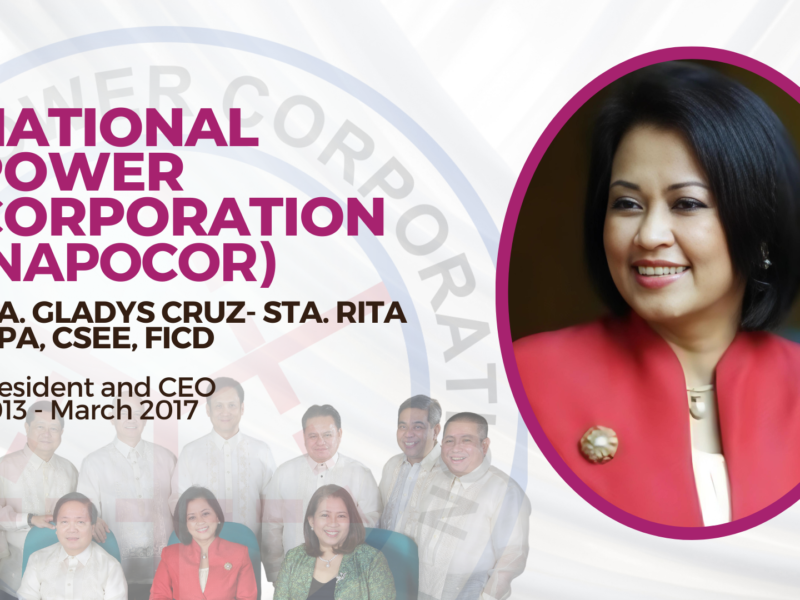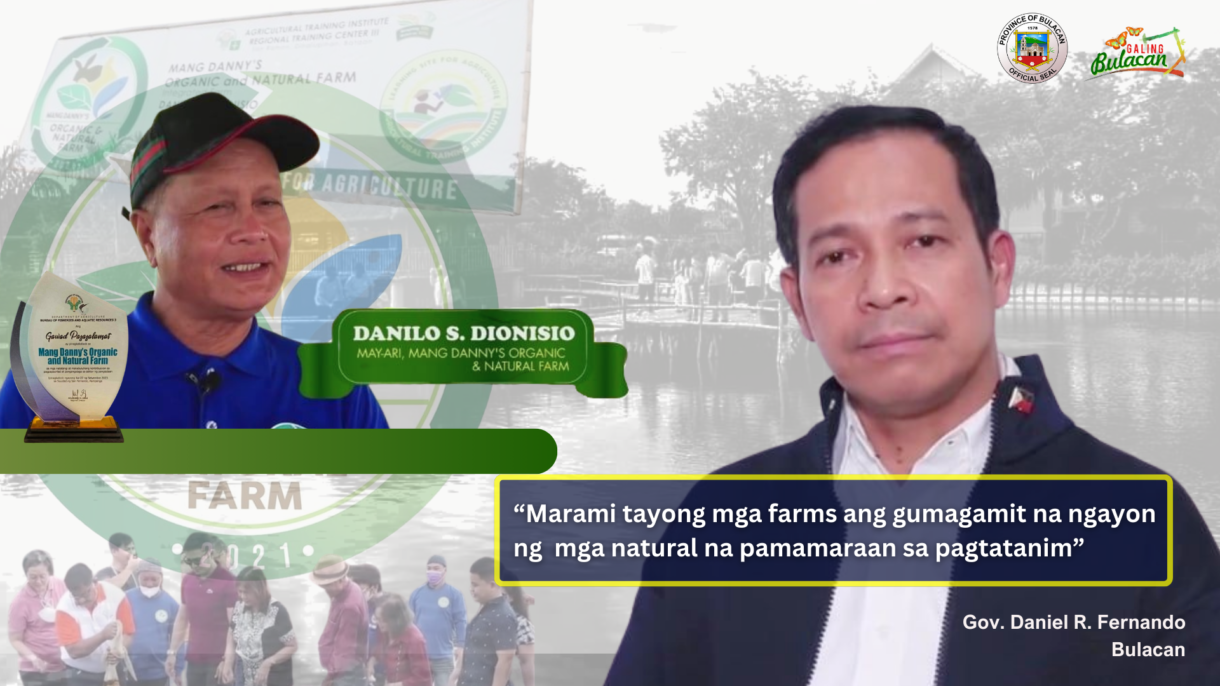
“Mga Bulakenyo, Kayo ba ay may interest sa organic farming? Dito sa ating lalawigan, Marami tayong mga farms ang gumagamit na ngayon ng mga natural na pamamaraan sa pagtatanim ng mga halaman at gulay. At pati na po rin sa pagpapalago ng mga palaisdaan at pagpapalaki ng mga livestock animals. Kaya’t sa isa sa ating pagdayo do’n po sa bayan ng Paombong ay makikilala natin si Mang Danny Dionisio. Isang dating OFW na ginamit ang kanyang kaalaman sa organic farming na syang naging daan po para maging isa sa mga accredited Learning Sites in Agriculture or LSA ng agricultural learning institute ang kanyang farm kaya’t atin pong pasyalan ang Mang Danny’s Organic and Natural Farm and experience the organic way of life.”
– Gov. Daniel R. Fernando
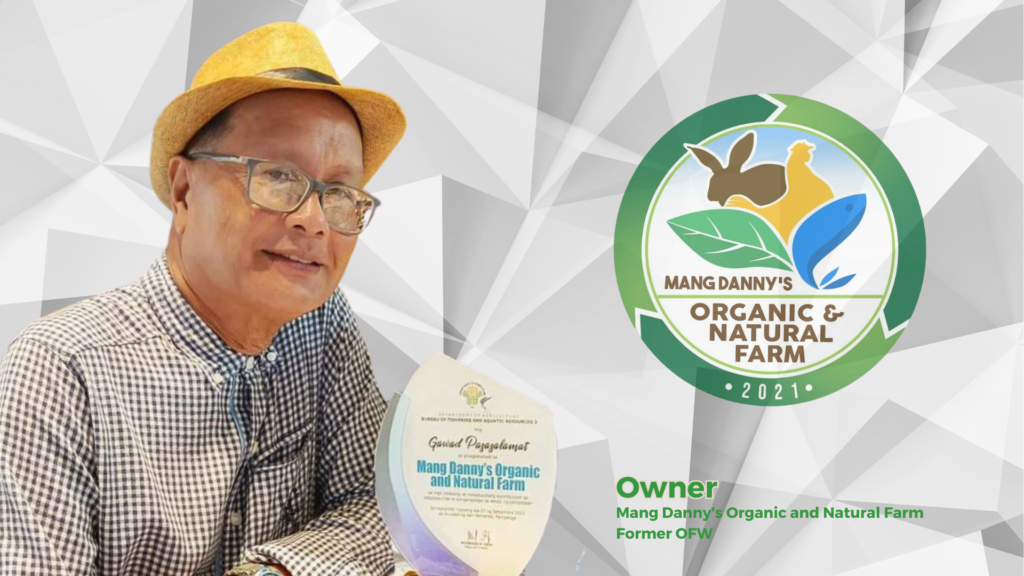
“Kaisa po ako sa adhikain ng ating pamahalaan para mapaunlad and sektor ng ating agrikultura at pangisdaan, magkaroon ng sapat, mura at ligtas na pagkain sa hapag-kainan ng bawat Pilipino.”
– Mang Danny
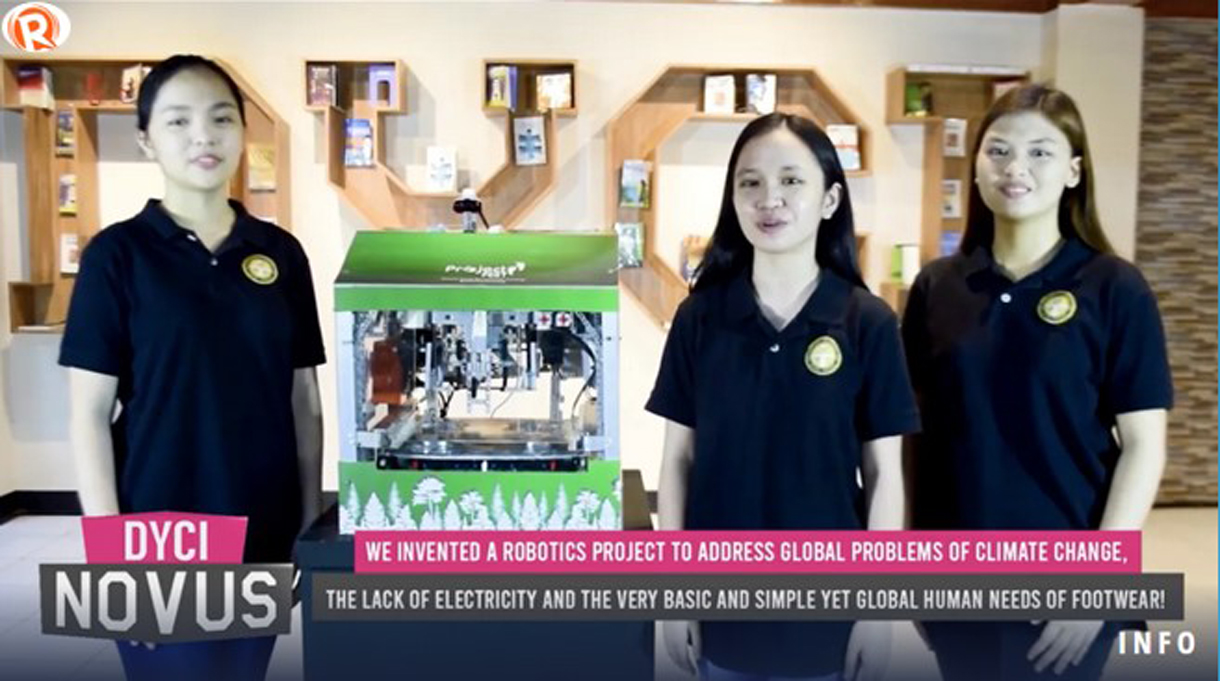
BY Dhel Nazario
Nov 25, 2020 09:18 PM
Amid pandemic, destructive typhoons, and other challenges, a Philippine team made up of young scientists from various schools has emerged victorious in the prestigious World Robot Olympiad Canada 2020-X.
Dr. Yanga’s Colleges, Inc. DYCI NOVUS Team bagged first place in the Open Category for Senior High School with their entry “Project Feet,” a three-part project composed of plastic recycling, power generation and provision of footwear.
The Project Feet robot manufactures footwear from plastic trash and is embedded with piezo discs that generate power for mobile phones and other gadgets.
The all-female team of Naiah Nicole Mendoza, Denise Carpio, and Abigail Silva with their coach, Beryl Cruz, also won the “Girl Power Award” conferred during the 19th Philippine Robotics Olympiad.
Dr. Yanga’s Colleges, Inc. DYCI Primes Team, meanwhile, bagged second place in the Open Category for Junior High School with their entry “Project Cycle,” a bicycle that can convert trash paper mixed with water lilies to make recycled paper.
Rice husk called “ipa” was used to make recycled pencils. Also, the Project Cycle bike was used to generate power for mobile phones and other gadgets.
The team consists of Annette Nicole Ambi, Aaron James Amar, and Daniella Angela de Guzman with their coach, Anne Jazpher Raz.
Lastly, the Candijay Municipal High School under the Department of Education, Division of Bohol won third place in the Open Category for Junior High School for their entry called BASAK.
BASAK stands for Bohol Action to Solidify Agrikultura.
It is composed of wind turbines, water pumps and biomass generators with many applications for the agriculture industry in Bohol.
The members of the team are Mary Haidee Makinano, Trisha Belle Olaivar, and Juno Ceasar Escatron with their coach, Thata Celeres. Due to the pandemic, the World Robot Olympiad (WRO) Canada 2020-X has made innovations in delivering the event to over 750 participants from over 40 countries.
WRO Canada 2020-X conducted the event fully online using digital floor plans, live streaming of activities, virtual meetings, social media platforms, and real-time digital scoreboard. The theme this year was titled “Climate Change/Climate Squad.” “The biggest challenge was to synchronize everything as the countries were from different time zones.
WRO Canada 2020-X set pre-scheduled calls and connected the participants resulting in the same excitement and success as a physical event.
The Philippine Robotics National Team has overcome adversity of slow internet access, remote meetings, school closure, series of typhoons and online presentations to the WRO Canada judges,” said Mylene Abiva of FELTA Multi-Media Inc. and national organizer of the Philippine Robotics Olympiad and World Robot Olympiad Ambassador (representing 72 countries).
Incidentally, FELTA, a pioneer and leader in the introduction of instructional materials such as electronic devices and audiovisual materials for Philippine schools, is one of the institutional partners of the Science and Technology Information Institute of the Department of Science and Technology (DOST-STII) and has long been collaborating with the DOST-Science Education Institute in various learning programs that promote science, technology, engineering and mathematics or STEM education in the country.
The Department of Education lauded the Philippine National Robotics teams for securing global recognition.
“I am aware that we have been facing adversities and challenges recently but seeing these learners triumph in the international stage motivates us to prepare and enhance basic education more for their future,” said DepEd Secretary Leonor Briones. (With a report from Merlina Hernando-Malipot)
Source: Manila Bulletin
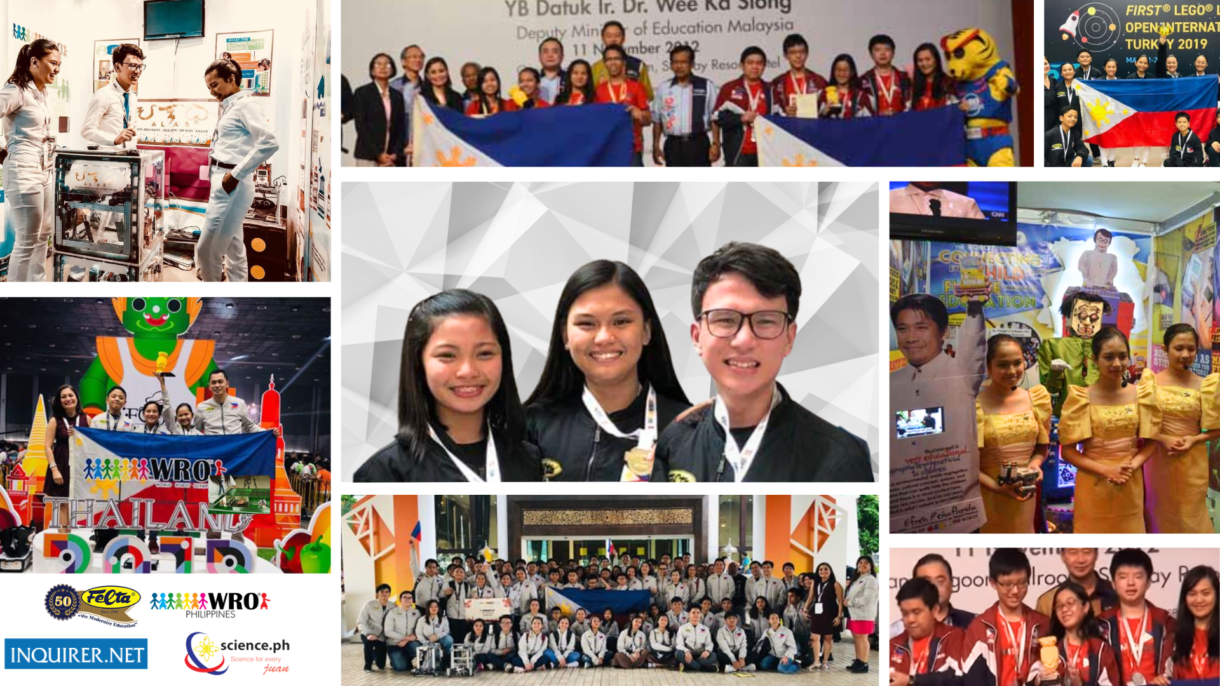
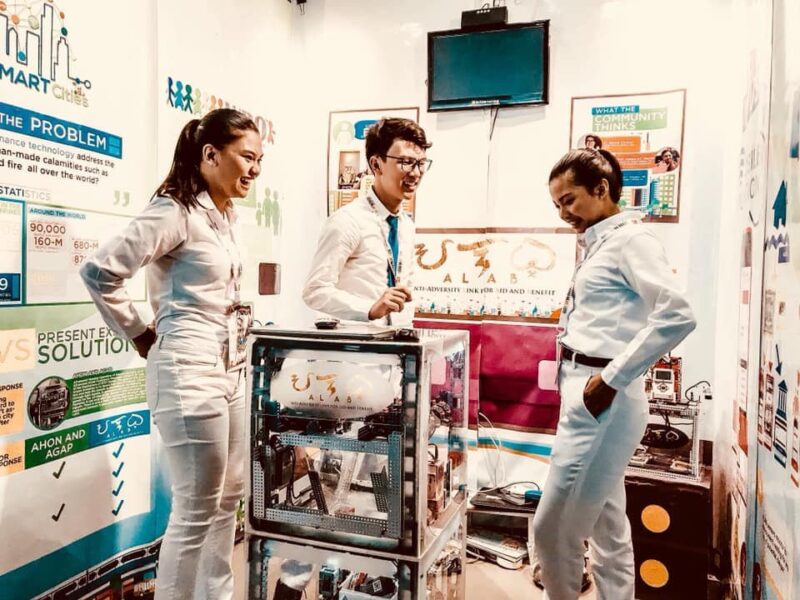
By Angie Quadra-Balibay, August 22, 2019
Dr. Yanga’s Colleges Inc. (DYCI) from Bocaue, Bulacan won Gold at the World Robot Olympiad Friendship Invitational (WROFIT) 2019 held in Aarhus, Denmark.
Team DYCI NOVUS, a member of the Philippine Robotics National Team, won Gold in the Senior – Open (Creative) Category with the project SMART Governance or ALAB (Anti-Adversity Link for Aid and Benefit).
The ALAB is an efficient, innovative and organized way of providing aid in addressing natural and man-made calamities all over the world through smart governance Technology.
The winning Robotics Team include Naiah Mendoza, Jaren Perez, and Doneth Dela Rama, with head Coach Beryl Jhan Cruz and Assistant coach Anne Raz. DYCI President, Dr. Michael Yanga, accompanied the team.
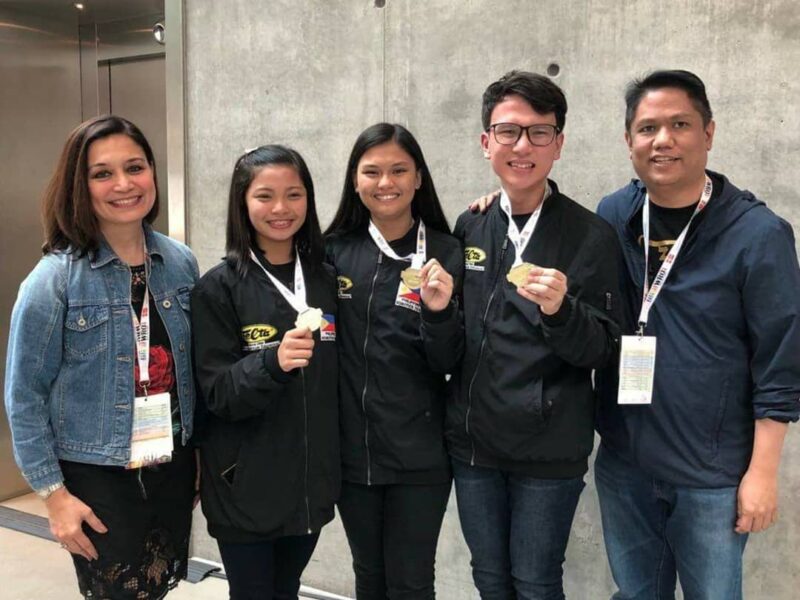
The Philippine Robotics National Team delegation, composed of students from DYCI, San Beda College of Alabang, JJAL Learning Center in Olongapo, and De La Salle Santiago Zobel (DLSZ), competed among 150 teams from 33 countries which participated in the WROFIT 2019 held from August 1-4, 2019 in Aarhus University.
Mylene Abiva, President/ CEO of FELTA Multi-Media Inc. which led the Philippine delegation spoke about the value of the competition saying, “The complexity, technology has evolved. Even at the at an early age, the concepts of Artificial intelligence and machine learning with technology will be adapted in our everyday life.”
The Philippine Robotics National Team will next compete in the World Robot Olympiad Finals in Gyor, Hungary on November 8-10, 2019.
Dr. Yanga’s Colleges Inc. of the Philippine Robotics National Team has won several medals in various international tournaments including a Gold in Turkey and Special Awards in Houston.
Source: Good News Pilipinas
The World Robot Olympiad Finals 2018 was held in Chiang Mai, Thailand with 63 countries or 486 teams participated and with over 26,000 teams participated in their respective country nationals. The most prestigious and largest Robotics competition in the world.The theme for 2018 is Food Matters.
Philippine Robotics NATIONAL Team had the largest delegation in 18 years ! World class performance as 17th place in Robot Soccer by CLARET School of Quezon City and Dr. Yanga’s Colleges Inc. won the SILVER Medal for Open/ Creative Category Elementary Level for their PROJECT FEED . As part of the cultural and heritage tour, the Philippine Robotics National Team visited Wat Sadouk temple and other places of interest in Chiang Mai.
World Robot Advisory Committee presented a Certificate of Appreciation to FELTA Multi Media Inc. and City of Lapu Lapu during the National Organizer VIP Dinner for the successful and momentous organization of the World Robot Olympiad Friendship Invitational 2018 in Lapu Lapu City, Cebu, Philippines.
The Vice President of the Philippines , VP LENI ROBREDO, joined the Philippine Robotics National Team at Suvarnabhumi Airport from Bangkok to Manila via our official carrier Philippine Airlines.
FELTA Multi Media Inc. continues to bring out the BEST in every student! Robotics Excellence and World Class!
Source: FELTA
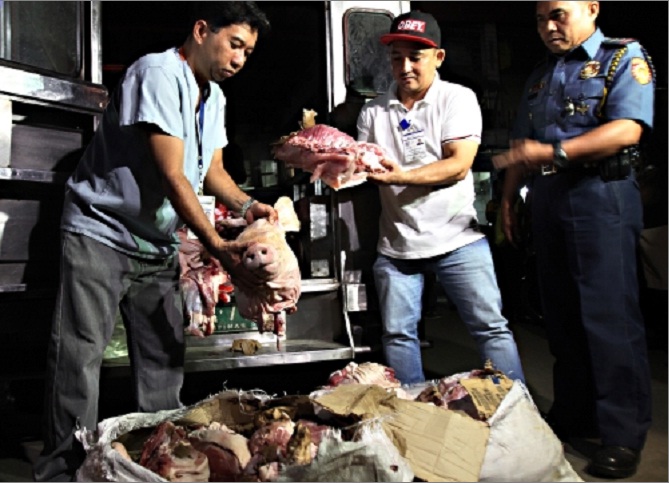
MANILA, Philippines — An “anti-botcha” robot invented by a team of Bulacan high school students got the nod of international judges and won a prize at the recently concluded For Inspiration and Recognition of Science and Technology (FIRST) Lego League (FLL) World Festival in Missouri.
The team from Dr. Yanga’s Colleges Inc. (DYCI) won 3rd Best Presentation for introducing their robot MAGIS Version 2 (Meat’s Anti-Germs and Infection Solution) at the FLL tournament held in St. Louis, Missouri, in the United States from April 25 to 28.
Team DYCI includes Team Captain Gladys Leigh Malana and members Tricia Carmela Santos, Ramikert del Prado, Michelle Arcanar, Kate dela Cruz, Lady Alein Goleng, Jules Martin Agsaoay, Jonathan Alejandro, Dave Adrian Bien, and Tim Jhalmar Fabillon.
The robot, made of stainless steel, aluminum and acrylic plastic, has color and temperature sensors that could detect unsafe meat.
Cuts the robot finds to have higher-than-normal temperature and unhealthy color would be tagged unsafe, according to the Department of Science and Technology’s Science Education Institute (DOST-SEI).
“We congratulate our Philippine Robotics team for again bringing honor in the bigger stage and we hope that this victory will inspire more young students to develop their skills in robotics and hopefully start
a trend in making it big in the FLL in the coming years,” she said.
The DYCI team’s participation in FLL was the first time a Philippine team participated in the robotics tilt.
More than 70 student teams from around the world took part in the competition, which challenged students to invent robots around the theme “Food Factor,” or technology that could help keep food safe for human consumption.
“I’m very proud. It’s the country’s first time to join the contest and we placed 3rd in Best Presentation. They did a good job. Not all first-timers win in an international competition,” said Beryl Jhan Cruz, one of the team’s coaches, said in a statement.
The team hopes the National Meat Inspection Service would adopt their technology for use in detecting “botcha,” (also called double dead), which is meat taken from the carcass of animals that died of diseases.
FLL handed out awards in 15 categories, among them the best teams in research, innovation, mechanical design, robot performance and presentation, where DYCI was declared one of three winners. The Philippine took home a trophy as their prize.
Overall FLL team winners are Falcons Japan (1st prize), Blue Gear Ticks of the US (2nd prize) and NXTremers from India (3rd place).
SEI Director Filma Brawner said Team DYCI’s win showed that Filipino students have the skills and talent to go head to head with students from other countries in robot design.
“With this victory, we will continue to support endeavours that will develop a pool of local robotics experts who will soon lead the country in providing solutions to problems related to science and technology,” Brawner said in a statement on Thursday.
FIRST is a US-based organization that aims to bring science, engineering and technology to students from around the world through competitions and mentoring. The group was founded in 1989 by American inventor and entrepreneur Dean Kamen, who invented the automated transporter Segway.
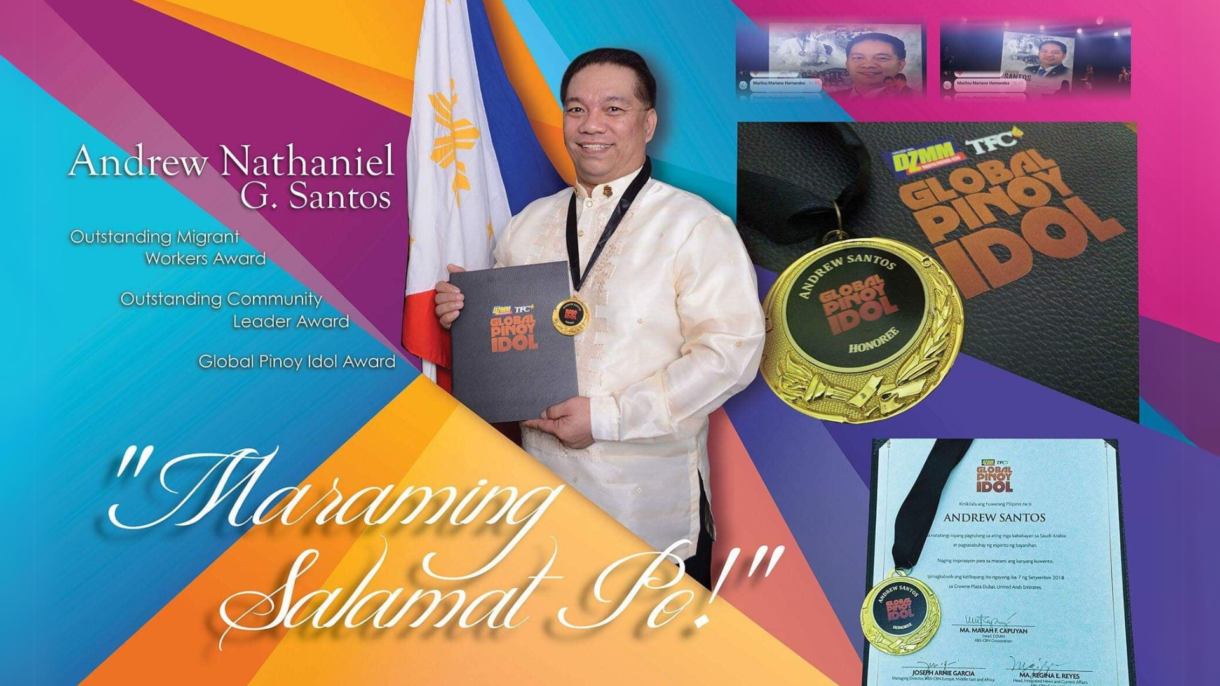
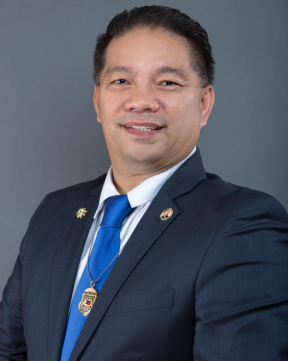
Planning Head
Group Five Pipe Saudi
Dammam, Kingdom of Saudi Arabia
A GRACIOUS and compassionate Bulakenyo, Andrew Nathaniel Santos is one of the first Filipinos who was presented the Outstanding Migrant Workers Award in 2014 by the Philippine Embassy in Riyadh. He is the first Outstanding Alumnus in the field of Information Technology (IT) of his alma mater La Consolacion University Philippines in Malolos City, Bulacan. He is the recipient of the Outstanding Community Leader in KSA by the Filipino Community Leaders and the Global Pinoy Idol given by ABS-CBN TFC-DZMM in Dubai.
The 55-year-old native of Guiguinto sits on the School Governing Board for 2-terms of International Philippine School in Al Khobar. He holds the rare privilege of holding highest positions in Filipino community organizations in the Eastern Province of the Kingdom of Saudi Arabia. He served, among others, as President of OFW Congress – Eastern Province KSA, Dammam Black Gold Sapatilha Eagles Club, K Fitness Club and Desert Smashers Club. He was International Director of Association of Chiefs of Police in the Philippines, Inc., Middle Eastern Makabayan Chapter, Regional Overseas Vice Chairman of Anti Organized Crime and Corruption Intelligence Group and Chapter Pursuivant of Knights of Rizal – EPCC Chapter. He was Vice President of Harmonicans Choir.
At work, he was promoted from IT Manager to Planning Head of Group Five Pipe Saudi. With this promotion, he holds the record as the only Filipino manager in one of the leading manufacturing companies of large diameter spiral pipes in the Arab kingdom. While he has done great things as a community servant, he still seeks how he can extend his support especially to our fellow OFW in distress. He organized various community and environmental awareness programs which the host country appreciated much. He was leading in the organizing of the Kalayaan celebrations in the Eastern Region and during the visits of the Philippine Presidents, H.E. Rodrigo R. Duterte and H.E. Ferdinand R. Marcos, Jr. in organizing the delegations of Community leaders to attend in the Meet and Greet in Riyadh, KSA.
He took his elementary education from San Agustin Institute of Technology in Valencia City where he graduated in 1980. He graduated as an Exemplary Student in 1986 from St. Anne’s Catholic High School in Hagonoy, Bulacan. He was an Outstanding Computer Science Student and recipient of Service Award when he graduated in 1991 for his bachelor’s degree from La Consolacion University Philippines, in Malolos City. He obtained his Master of Arts in Education from Adamson University in 1998 and Masteral Units in Master of Business Administration in La Consolacion University Philippines and Masters in Information Networks in Polytechnic University of the Philippines.
He was 20 years old when he had his first paying job. He recalls, “During my college days, I worked as data encoder in the university and so I was able to sustain my education and helped also my three brothers in completing their baccalaureate degrees.”
In 1991, he married Vilma Gonzalo Mendoza. Their marriage is blessed with six children. The eldest, 32-year-old Kristine Andrea, a graduate of BSFM at Far Eastern University, works as a call center supervisor. The second child, 29-year-old Katrina Ann, who earned her bachelor’s degree in Math major in Computer Science from Bulacan State University, is a credit analyst in BPI Main office in Makati. The third child, Karen Angelica is a graduating BSIM student at BSU. The other children are Engr. Karl Andrei, aged 25; Karisa Alyanna, aged 23, a 3rd Year Tourism Management Student in National University Baliwag; and, Kiana Amirah, aged 9.
Prior to his departure overseas, he was the Dean of the College of Computer Science and Engineering at La Consolacion University Philippines. He said, “I requested the University President, Sr. Carmel Ma. Catan, OSA to allow me to go to KSA for a two-year sabbatical leave so I can expose myself to the industry or in the business sectors and in my return, I will be developing a comprehensive curriculum in the college of Computer Science and Engineering. That was the plan that time.”
Fascinated. The first time he came to Dammam, he was impressed with the city’s development. “I was fascinated with the infrastructures and the way things are implemented. I feel that it is more peaceful and enjoyable to stay here. I still appreciate the host country allowing expatriates to work for a living, although there are new laws and regulations now, but still, it is favorable to work here. I find many Saudis as friendly, professionals and caring people.”
He said, “I took note of the increasing needs of my family. As a father of six children, it was very difficult for me to sustain their education. I was forced by the situation to stay as an OFW. Happily, I was blessed that I was able to bring my family with me here in KSA and we were together. But this is not the case of many.”
He has been abroad for the last 22 years. He further said, “After serving for three years from August 2002 to September 2005 as System Analyst in Gulf Agency Company in Dammam, I found myself, that it was then the needs of my family should be on top of my priorities. I decided to continue my service in the kingdom until today.”
Modern factory. The Group Five Pipe Saudi which operates under Abdel Hadi Al Qahtani and Brothers in Dammam is a modern factory that supplies Saudi Arabia and the neighboring Middle East markets with big-diameter, high-quality carbon steel pipes. These pipes are used in the sectors of oil and gas, water and construction.
Andrew was involved in creating and developing an in-house information system known as the Pipe Tracking System. It was a very significant project because it serves as the main application that tracks the status of the project and it will provide a real-time update and needed reports. “This was during the time that I was the IT Manager of the company. Being the Planning Head, I am responsible for the production planning and monitoring of various multi-billion projects in Saudi Aramco and SWCC in the KSA.”
Lessons learned. According to him, being an OFW is not forever. “It is a temporary journey in your life that you try to get out in your local community to look for a greener pasture outside the country. Value your money and time. Educate your family in the Philippines that the money that you earn is not easy. Encourage your relatives to be entrepreneurs so that the daily needs may be provided by the small business you put in. This will make them busy and productive rather than waiting for your remittances. Start investing for your health and future. Look for good investment programs that will allow your money to grow big.
He adds, “Always communicate with your family, relatives and friends. Nowadays, it is easy to keep in touch through social media. This is for you not to dislocate and be forgotten by the people whom you know. It will make you easy to reintegrate one day. Lack of communication makes relationships with your spouse or children difficult and it makes you alienated from them. Sometimes, it leads to broken and problematic family relationships. So be careful, always go back to your decision why you have to leave them.”
“As an OFW, look for partners of the same interest as yours, so when you come home, it will be easy to put up business. Do linkages and partnerships. Always plan and see to it that it is achievable. Your plan will make your journey in life more worthwhile and no regrets.”
Passion to serve. “When I arrived here in August 2002, after a month I was able to get involved in the Filipino Community. I was appointed to handle a sports tournament (Basketball League) among Filipinos here in Dammam and Al Khobar. My training and experience in the Philippines handling a regional meet paid off and I was able to share it to many of the OFWs.”
“I joined OFW Congress-EP and during the election that year. I was elected as the Secretary General and that started my life as a servant to the OFW. As president of this organization, I was able to concretize my passion to help, assist, educate and serve my fellow kababayan creating an environment of unity and collaborations about various organizations.”
“I have made many accomplishments in terms of helping my fellow distressed OFWs, especially during the pandemic. Truly as they said Bagong Bayani I feel useful to my country as we are the one who help to fuel our economy.”
He has been commended for his consistent passion to serve, share and love to people. “I am a type of a leader who does not need an appreciation or accolade. It is enough for me to make other people happy and succeed.”
“I wanted to take challenges and opportunities and never give up. Many events in life had passed. Many successes are being praised. For me, if I will do it again, I will make sure that it is in the next level. I feel I still have a lot of things to do. God made me as an instrument of his greatness and blessings. I will continue and I will never stop until the last moment of my life. I want to be remembered for having a happy and contended life, leaving a legacy that anyone would emulate and replicate.”
Source: Andrew Nathaniel Santos/ ABS-CBN TFC Global Pinoy Idol
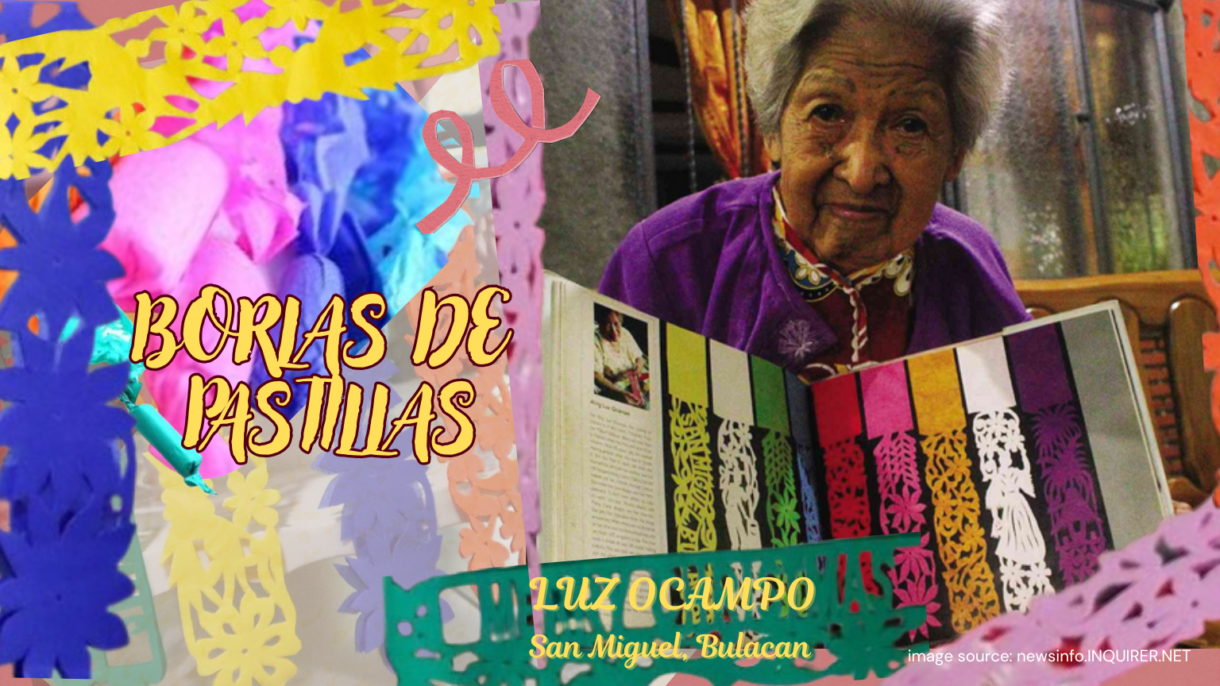
By: Ron Lopez
Inquirer Central Luzon
12:15 AM November 05, 2015
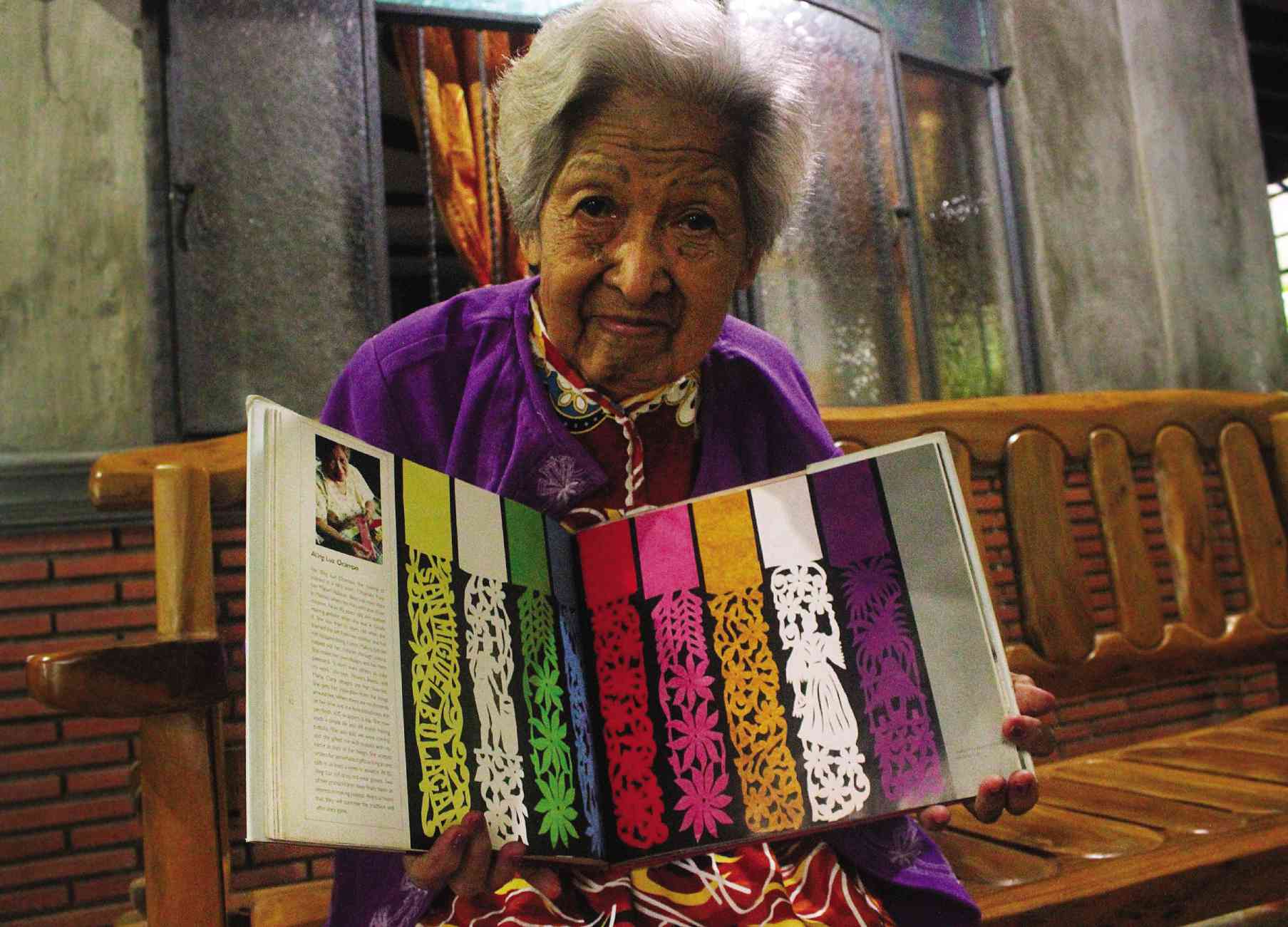
CITY OF MALOLOS—The agricultural town of San Miguel in Bulacan is home to “pastillas”—that creamy, soft milk candy whose recipe was made popular recently by an online video posted by Angelica Jane Yap, popularly known as “Pastillas Girl,” who was nursing a broken heart over a former lover.
But in San Miguel, the original Pastillas Girl is not a comely lass looking for another chance at love.
Meet 93-year-old Luz Ocampo, who has been recognized for preserving the traditional art of making pastillas wrapper, called “borlas de pastillas” or “pabalat,” in the town formerly called San Miguel de Mayumo.
The term “mayumo” means “sweet” in Kapampangan.
Ocampo spent over 70 years nurturing the art, which is threatened by the loss of interest among the younger generations, said her daughter, Naty Ocampo-Castro. She is among, if not the last, remaining pabalat artisans of her generation but her contribution in keeping this art alive is evident in her body of work.
Her passion for paper cutting started at school when pabalat making was taught as part of the curriculum. Her skills improved when she started helping her mother, Adelaida Villaseñor, in cutting wrappers during her spare time after school.
Villaseñor was known for her pastillas and other delicacies in their home village of San Vicente.
Since learning the craft in her fifth grade at 12 until her retirement in 2010 at 88, Ocampo had created more than 50 designs, mostly based on rural settings in San Miguel.
Castro said at least 25 of these designs had been patented under her mother’s name.
Ocampo’s favorite designs include those showing outlines of Maria Clara from Jose Rizal’s Noli me Tangere, the traditional “bahay kubo” (nipa hut), and an image of a man pounding rice.
“When Mommy was in mood, she would draw from time to time. She drew anything she noticed in San Miguel, including nature [elements and scenes]…. She’s really an artist,” Castro told the Inquirer.
Unknown to many, Ocampo is also an expert in the art of fruit carving, using lime, santol and pomelo as her canvasses.
Aside from her original patterns, Ocampo is known for making customized designs based on the preferences of her customers, among them simple Bulakenyo folk and owners of five-star hotels in Metro Manila.
Customers usually request their names to be put in the elaborate design of the
2 x 10-inch pastillas wrapper. The wrappers and sweets are given as gifts during important occasions.
It was during Ocampo’s last year in high school, in the early 1940s, when the Japanese invaded the country, forcing her to give up pursuing college and tap her skills.
“When [World War II] started, I was in fourth year high school. That’s all I
finished since every school was closed year-round. I did not manage to study in Manila because of the chaos,” Ocampo said.
After the war, she put up a gift shop in San Miguel, where her skills were honed by wrapping gifts using wrappers with her own designs.
Upon marriage, Ocampo pursued pastillas wrapper making as a hobby and started earning by taking orders from home. But it was only after the death of her husband, Oscar, in the 1970s that she turned her hobby into a full time livelihood to support her four children.
Ocampo would start collecting thousands of pieces of pastillas wrappers in preparation for the high demand in the months leading to December when several celebrations are held, Castro said.
She would spend her days with folded colorful Japanese paper on her right hand and a pair of cuticle scissors on the other, carefully cutting the traces she made. She would place it between the pages of old magazines or books to avoid being crumpled.
She used to finish at least 100 pieces of pabalat a day, which she sold for 20 centavos in the 1950s. This now costs P600 per 100 pieces for basic designs and P1,000 for customized designs. If a customer wanted pastillas with the wrapper, then the product is sold at P12 each.
The tedious part of pastillas wrapper making, Castro said, is the cutting process. While a trace is followed, cutting small holes of the design takes effort and time, and a simple error could render the whole set useless, she said.
“Cutting needs patience, a lot of patience,” she said.
Ocampo could finish a set, which contains five wrappers, between 10 and 15 minutes. “She made her products in our house in San Miguel. She doesn’t want to rent a space since it will entail an additional cost,” Castro said.
Ocampo’s wrappers became popular in Bulacan after she transferred to the City of Malolos in 1993 to live with her daughter, carrying with her the art of pabalat making.
Food historian Milagros Enriquez noticed Ocampo’s talent when she saw her demonstrating the craft in a school in Malolos. She invited Ocampo to seminars and workshops about the dying traditional art.
Among Ocampo’s regular customers is businessman Jaime Zobel de Ayala, who visited her in Bulacan to document the art in 2010.
Ocampo has displayed her craft in several official functions in Malacañang, with the latest in July 2012 when Spain’s Queen Sofia came to the Philippines for a five-day official visit.
Ocampo has been recognized by several groups, including the National Historical Commission of the Philippines, which conferred on her the Gawad Pamanang Sining. The Cultural Center of the Philippines paid tribute to her as one of the country’s “Manlilikha” or living artisans of the Philippine traditional arts.
The Bulacan government and the local governments of Malolos and San Miguel have been recognizing Ocampo since 2000 for her contribution in the preservation of the traditional art.
In September this year, she was cited as one of the province’s Dangal ng Lipi awardees, the highest recognition given by the provincial government to Bulakenyos who excelled in their chosen field.
But one of the things she enjoyed is conducting workshops and seminars in different schools and for organizations so she can pass on the art of paper cutting to younger generations, Castro said.
But Castro lamented that the craft is slowly dying, with few people appreciating and practicing wrapper making.
“She taught the women here how to make pastillas wrapper but no one wants to do it because it is tedious and hard,” Castro said. “Most of them have no patience doing it.”
Of Ocampo’s children, only Castro decided to pursue craft that her mother devoted her life into. The decision, however, came only after Castro retired as an industrial engineer in 2010.
Now 57, Castro said she went into pabalat making for the sake of her mother’s legacy. “I was not interested when I was younger, but my mother said no one will take care of the business, no one will continue the craft of pastillas wrapper making in the family. So I took on this task,” she said.
Source: Inquirer.net

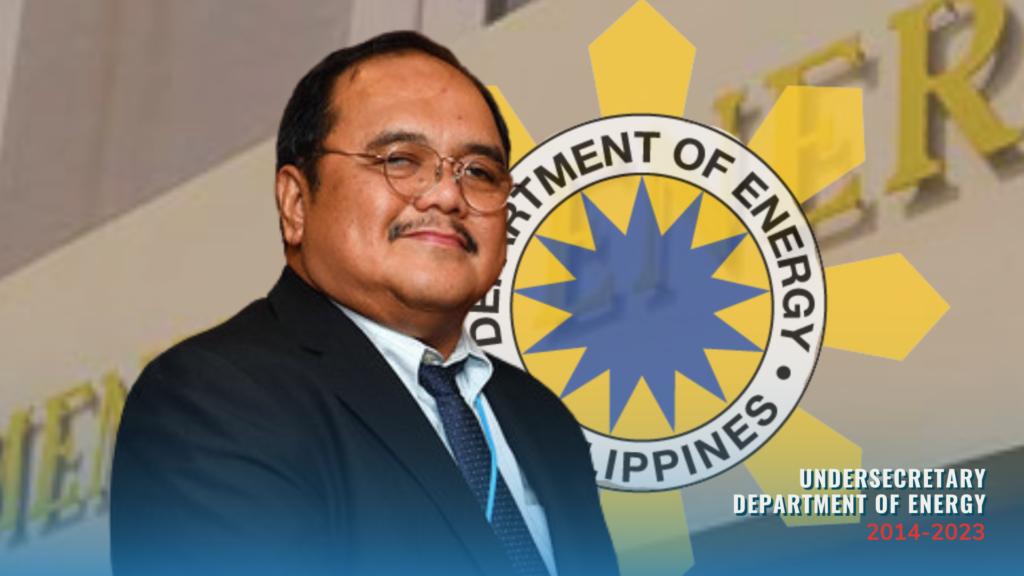
Donato D. Marcos is a senior undersecretary of the Department of Energy. As undersecretary, he holds array of portfolios which include energy efficiency and conservation, alternative fuels, energy resource development (coal, oil and gas), downstream oil industry management and nuclear energy program, among others. He is chairman of the Philippine Downstream and Natural Gas Regulation Committee, Task Force Mimaropa and Philippine Convention Energy Cooperation program. He is also alternate chairman for PNOC Exploration Company, National Biofuels Board and MOU China-Philippine Bilateral Cooperation.
Usec. Marcos has attended several energy-related trainings from various parts of the world like hydropower technology in Slovenia, Czech Republic and Prague, renewable energy from Germany, liquified natural gas from Singapore and Qatar, and nuclear energy technology from Japan, Russia, Vienna, and Croatia.
Prior to his stint at the DOE, Marcos is President Emeritus and used to be National President of the League of Municipalities of the Philippines. He was also Municipal Vice-Mayor of Paombong town in Bulacan from July 1, 2004 to March 21, 2005 and eventually became the Municipal Mayor thereafter following the demise of the incumbent mayor. He was until June 30, 2013.
He has a degree in Mining Engineering from the Mapua Institute of Technology and finished his master’s degree in public administration from Manuel L. Quezon University. He is also an aqua culturist and businessman.
Source: Donato D. Marcos Website
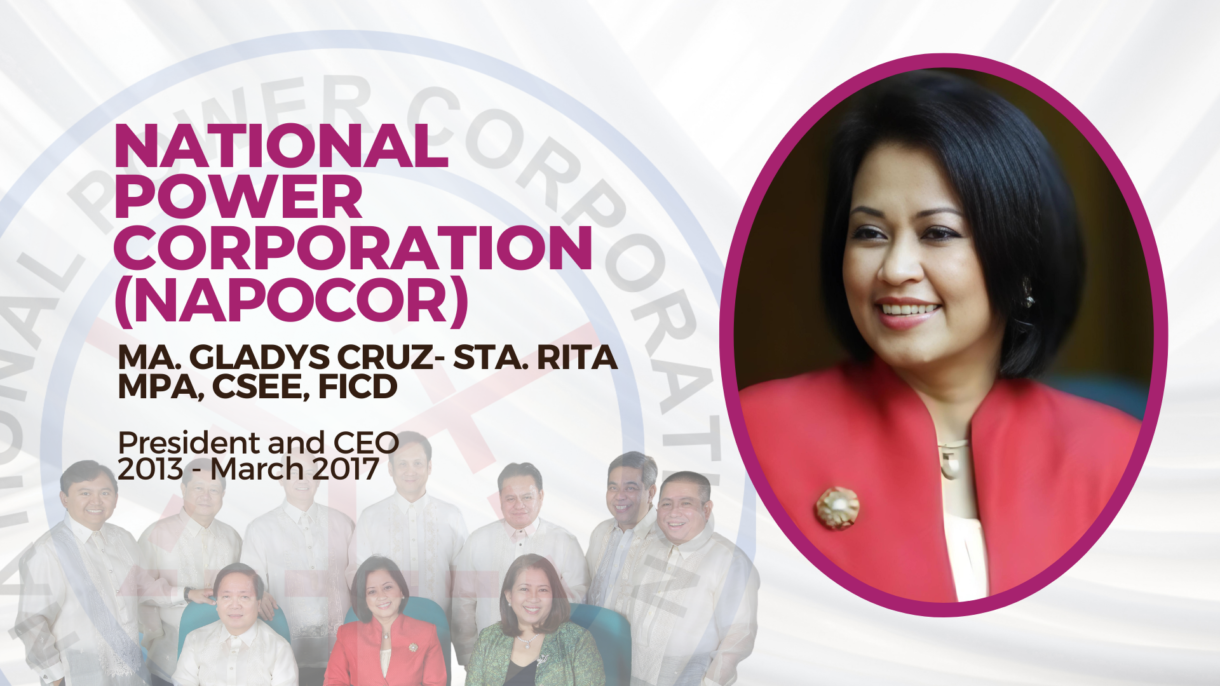
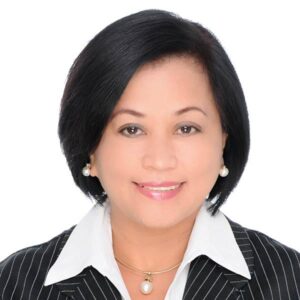 August 1, 2013
August 1, 2013
From the Department of Energy
President Benigno S. Aquino III recently appointed Ma. Gladys Cruz-Sta. Rita of Bulacan as National Power Corporation’s (NPC) new President making the latter the first woman to head Napocor since its foundation in 1936.
Sta. Rita, a former Director of Philippine National Oil Company (PNOC) and Chairperson of its subsidiary PNOC Development and Management Corporation (PDMC), was endorsed by Secretary of Energy Carlos Jericho Petilla to President Aquino for the position after former NPC President Froilan Tampinco resigned in his post.
Gladys Sta. Rita studied at the University of the Philippines School of Economics, both for her undergraduate and graduate degree courses. She completed a Certificate Program for Senior Executives at the John F. Kennedy School of Government in Harvard University. She also completed a master’s degree in Public Administration at La Consolacion University of the Philippines.
Before her stint in the energy sector, Sta. Rita served as the Provincial Administrator of Bulacan for 17 years and worked as consultant at United States Agency for International Development (USAID) through the HPDP of the UPEcon for projects in the Philippines. She also worked as the Director General of the Liberal Party of the Philippines.
Sta. Rita authored Running A Bureaucracy: A Guidebook for Local Government Unit Administrators, Other Public Managers and Elected Officials, a UP Centennial Publication of the University of the Philippines National College of Public Administration and Governance (UP NCPAG). She also co-authored Towards a More Effective Peoples Participation in Local Governance: A Sourcebook on Local Public Finance.
Source: Official Gazette Philippines
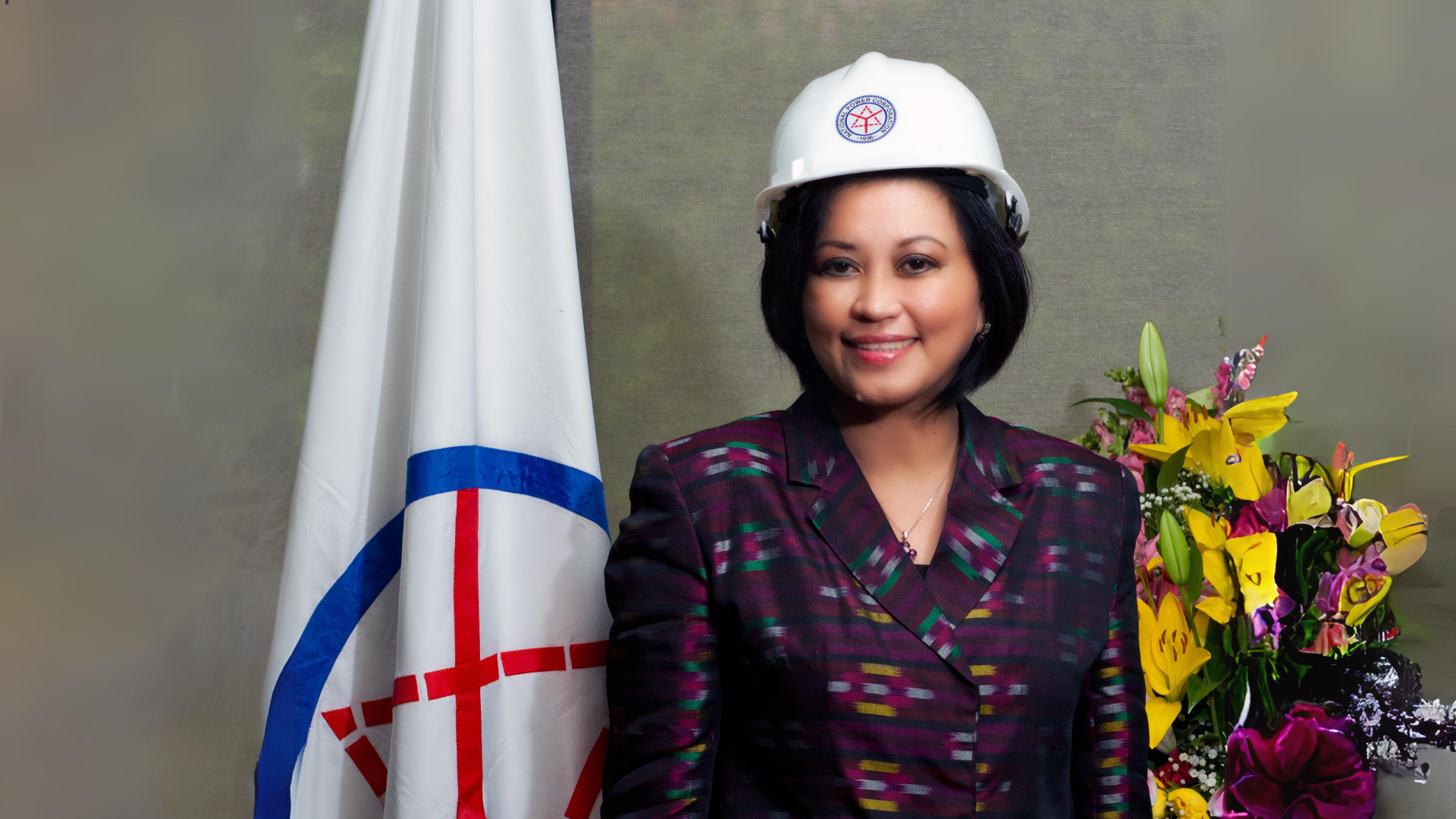

Dino Balabo
May 3, 2009 | 12:00am
BALIUAG, Bulacan, Philippines – This bustling town in northeastern Bulacan last week marked the centennial of buntal hat weaving with a 10-day festival.
The “Buntal Festival” celebration is highlighted by a job fair, painting contest, concerts, buntal hat Santacruzan, street dancing, search for Lakambini ng Baliuag, and exhibits of products made from woven buntal fibers.
According to the book “Baliwag Then and Now” by Rolando Villacorte, buntal hat weaving started in this town sometime between 1907 and 1909 when Mariano Deveza brought to Baliuag bundles of coarse buntal fiber from his home town of Lucban, Quezon.
Back then, Lucban was the sole seat of the buntal weaving industry and could not cope with the large demand for the product. Baliuag was already famous for bamboo hat weaving.
Rosie Decasa, the tourism officer of this town and owner of Baliuag Buntal Enterprises, said Deveza first brought the buntal fibers to the late Dolores Maniquis who became fascinated and experimented with it, softening the fibers using a heavy wooden roller.
Maniquis started weaving the pliant fibers into hats, and later experimented with colors by first bleaching and then dyeing the fibers.
Decasa said that buntal hat weaving became a booming industry in this town by 1910, with at least one weaver in every household.
As the industry grew, specialization set in and improved production methods became standard practice.
Decasa explained that to finish a hat, four persons were needed.
The first weaver would take care of the hat’s crown or head, and the second weaver would make the brim.
The third weaver would finish or close the brim, while the fourth would bleach the yellowish fiber to make it more attractive.
By 1920, Baliuag buntal hat production became a major dollar-earning export, as it was sold in the world market and became known as the “Panama hat.”
However, by the late 1920s, the industry suffered from cutthroat competition from China, as the Chinese started producing their version of “balibuntals” with raw materials imported from the Philippines.
Decasa said that in 1923, Chinese businessmen in Hong Kong hired Filipino weavers, and before the war, the industry was in virtual collapse.
However, after the war, the industry began to thrive anew under the Balibuntal Straw Hat outfit of the late Joaquin Villones, which had about 5,000 weavers and suppliers.
Records show that the Villones outfit manufactured about a quarter of the 40,000 total monthly production by the 1960s.
Today, buntal hat weaving continues to thrive here, but manufacturers like Decasa are facing a serious lack of skilled manpower.
“We still have hundreds of weavers, but they mostly do it on part-time basis,” Decasa said, adding that she was willing to transfer the skill and technology to young workers through workshops and seminars.
She said she is also willing help train detainees in different jails to learn how to weave, in order to help the industry survive.
Feliza Ramos, 92, told The STAR that the economic crisis has reduced the possibility of increased production of buntal hats.
As one of the oldest living buntal weavers, Ramos wove her last buntal hat two years ago.
For her part, Pilar Bernardo, 98, said that not too many young people today are interested in buntal hat weaving.
“Noong panahon namin, lahat kami ay gumagawa niyan, pero ngayon iba na interes ng mga kabataan (In our time, we were all weaving, but now the young people have different interests),” she said.
Source: PhilStar Global

